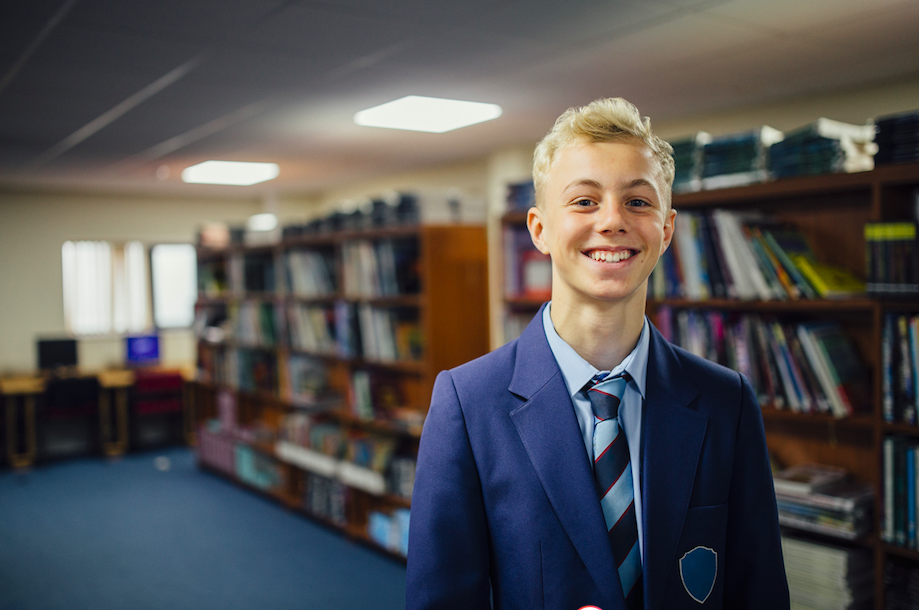Nothing is worse for a teacher than a disruptive student. It can make you feel helpless: after all, what are you supposed to do when one bad apple is trying to ruin an entire lesson?

Fortunately, you can stop disruptive behaviour as soon as it starts with a few quick tricks. And with these tools at your disposal, you will be able to enjoy a somewhat peaceful classroom once again!
Start Things Off Right
The problem with most disciplinary procedures is they are reactive. That is, you must wait for something to go wrong before you take measures to fix things.
But one of the best tricks for handling disruptive students to be proactive instead of reactive. All you have to do is greet each student with warmth and positivity as they enter the classroom. Be ready for your lesson.
On top of that, you should establish a standard procedure before things begin. This may include having them stand beside their desk until told to be seated. Everyone should start the lesson together.
This mixture of positive energy and polite behaviour helps create a routine that fewer students will try to disrupt.
Nip It In the Bud
Most bad behaviour doesn’t start as truly bad. Instead, it begins as smaller disciplinary issues that, when left unchecked, grow into something nasty and even dangerous.
That’s precisely why you need to nip even minor discipline problems in the bud. Ensure that students do not talk over others, ignore your lesson, or engage in shenanigans when they think you aren’t looking.
All in all, such vigilance lets them know that you are watching and that you will enforce even minor misbehaviour. That should make your class less likely to try something more severe.
“Please” Is Unpleasant
One thing you should know about your students is that they are literal-minded. They may consider even minor words or actions on your part as an invitation to disruptive behaviour.
For example, many teachers say “please” when they ask a student to do something. But what message does this send to the student? It sounds like you are making a request instead of giving a command.
No wonder, then, that some students ignore what you tell them. They aren’t taking it very seriously! Instead, say “thank you” after telling them what to do. It creates a polite interaction while making clear that you expect immediate compliance.
With Great Responsibility Comes Great Obedience
Disruptive students often rankle under the rules of others. They feel helpless because they are in a situation (your classroom) in which they have little say or control.
Believe it or not, you can reduce disruptive behaviour by giving students additional responsibilities. This can range from appointing team leaders to having the whole class create a charter of acceptable and unacceptable behaviours.
While simple, this trick creates a sense of shared responsibilities. And students will be less likely to disrupt an environment they are partially responsible for.
Know When to Stop Talking
In some ways, the discipline fight is lost once you single out a student. Your goal was a smooth classroom: as soon as you have to discipline someone by name, your lesson has been disrupted.
That’s why it’s essential to reinforce discipline through more subtle cues. One of these is moving closer to disruptive students when lecturing. The other is selectively pausing your lecture.
When a student realises they are now the only one speaking, they are likely to take the hint and stop. And this lets the rest of the class know that you are strictly paying attention to their words and behaviour!
A Kind Word
Here’s a short and straightforward trick: never waste an opportunity to praise a student for good work.
In the short-term, this enhances classroom morale and builds loyalty. Students realise their excellent work is being noticed and they get to bask in the joy of public praise.
In the longterm, this kind of loyalty and solid morale reduces disruptions. Just like that, you have created a positive environment that few would ever want to disturb!
Talk to the Parents
When you ask why students are disruptive, it usually has a simple answer: “because they think they can get away with it.”
One way to mitigate this issue is to stay in contact with students’ parents about their academic and behavioural performance. As with other suggestions, this reinforces that you are paying close attention to the student (even when they don’t notice you doing so).
And parents of disruptive students will carry out additional discipline at home. When they know that punishment at school and at home is in the offing, most disruptive students will start getting back in line!
How to Stop Disruptive Students Ruining Your Lesson


